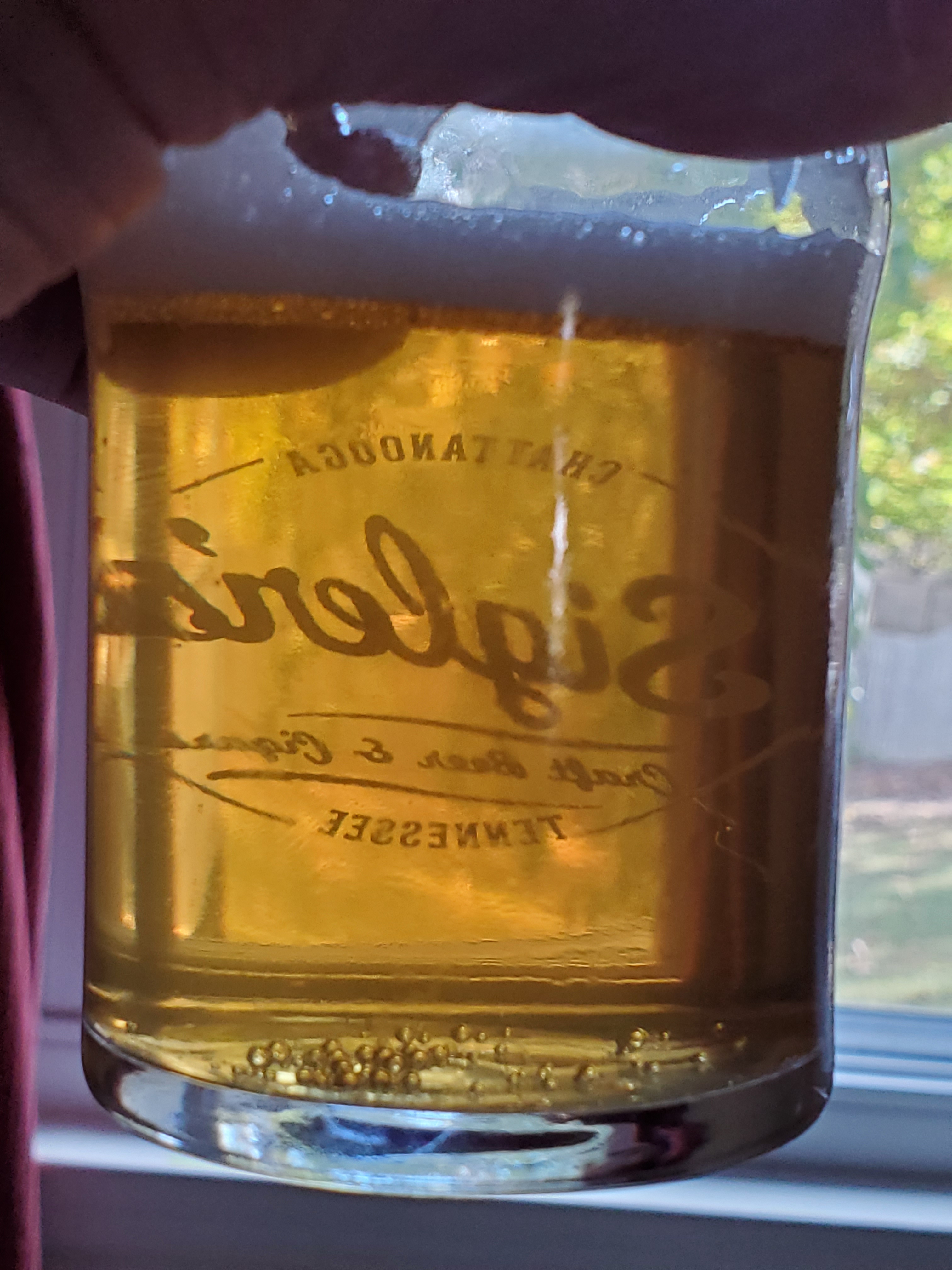BrewnWKopperKat
ʘ‿ʘ
How do you convert ppm (for each of those items) into grams?I also add 10 ppm ascorbic acid and k-meta just before bottling, and I think that helps with shelf life.

How do you convert ppm (for each of those items) into grams?I also add 10 ppm ascorbic acid and k-meta just before bottling, and I think that helps with shelf life.
How do you convert ppm (for each of those items) into grams?
My O2 avoidance is cold side process and equipment - I'm not really set up to deal with hot side O2, but that's not a shelf-life concern imo. Carboys are piped to purge my kegs, cold crashing is done under ~0.4 psi of CO2 head pressure, transfers are tightly closed. I add 1 teaspoon of ascorbic acid dissolved in 30ml of warm RO then injected into the keg purged with fermentation CO2 prior to a closed transfer using pre-purged lines and vented through a bucket of water so nothing is going to find its way in the "back door" so to speak.
But I had been doing all of that mechanical stuff since even before the "Hazy Craze" hit. The ascorbic acid was the game changer - a profound game changer, really...
Cheers!
You add the asorbic acid post boil/pre-fermentation?
Clearly yes - at kegging. That's it.
Imo everything that happens before fermentation has potential character modifying possibilities but doesn't have much effect on shelf life...
Cheers!












![Craft A Brew - Safale S-04 Dry Yeast - Fermentis - English Ale Dry Yeast - For English and American Ales and Hard Apple Ciders - Ingredients for Home Brewing - Beer Making Supplies - [1 Pack]](https://m.media-amazon.com/images/I/41fVGNh6JfL._SL500_.jpg)



IIRC from cider making, 10ppm is ~1 campden tablet per 5 gallons. Been a while, though, and I know there's some free ion math that is usually more important than straight quantity.How do you convert ppm (for each of those items) into grams?
How do you convert ppm (for each of those items) into grams?
Clearly yes - at kegging. That's it.
Imo everything that happens before fermentation has potential character modifying possibilities but doesn't have much effect on shelf life...
Cheers!
I have no idea who or what "Genus" might be.
I use 1 tsp of Ascorbic Acid powder dissolved in 30ml of warm water, injected into each pre-purged 5 gallon keg just prior to filling...
Cheers!
It's artificially labelled as great beer because it's been judged to have limited flaws at that moment in time and the knowledge of having limited flaws exists within the realm of those giving the label "great beer". In other words, at that time there exists causation to label it as great thus the label given by those with apriori knowledge is negated and as time passes so does the label "great beer".
The label "great beer" is still just a perception that happens at certain times with well brewed beer.
BJCP judging reaches toward objectivity - very commenable, for sure. Speaking of philosophy, I'm big on empiricism. And skepticism. And science. But...philosophy lecture
Got it. All I can say is that I've thought my brews were great even when they were objectively not. However, MI didn't learn of that until my taste became more refined. In a way, understanding and recognizing typical flaws is a curse because despite being advanced enough to avoid most problems, it stings way harder when they pop up. My biggest frustration lately is not being able to repeat great beers, even to the level of the previous batch. I guess the question, properly aligned with the spirit of this thread, is whether my beer is actually very close to what it was and my expectation were subconsciously elevated, or does it actually suck?BJCP judging reaches toward objectivity - very commenable, for sure. Speaking of philosophy, I'm big on empiricism. And skepticism. And science. But...
My curiosity in launching this thread is tied firmly to the brewer's subjective judgment - perhaps informed (or misinformed) by others' judgments, but mostly driven by one's experience of one's own beers.
"Woo"? Or maybe just less interesting to some than others.
Or even the vessel in which it's served.I do find it interesting how just changing the serving temperature and carbonation level can influence how a beer is perceived.
